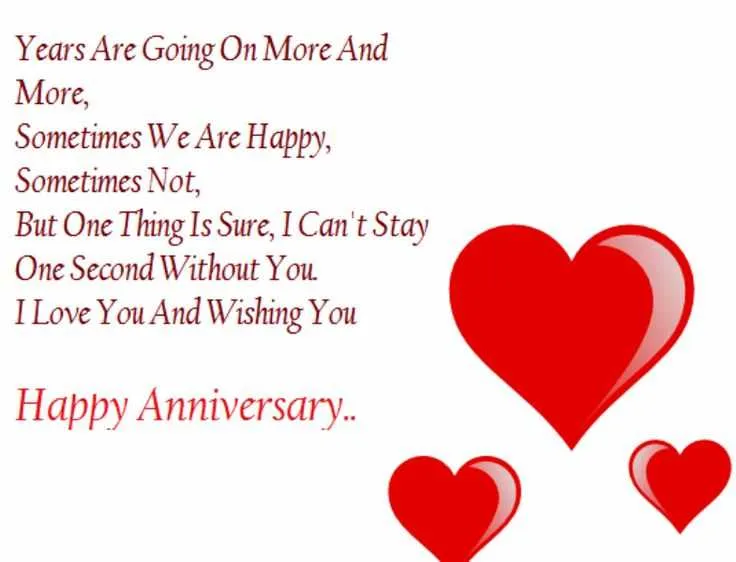Heartfelt words to celebrate love and shared memories on your anniversary

Write what you feel, not what you think you should say. A message that sounds like you carries more weight than a borrowed quote. If you admire your partner’s patience, mention a moment that proves it. If their laughter keeps you grounded, tell them how that helped you last week.
Be specific. “I love you” lands deeper when followed by “because you still made me coffee when we argued.” Detail shows you notice and appreciate, which is what most people want–especially on anniversaries.
Skip generic lines. “You complete me” could apply to a puzzle piece. “You stayed up with me during my worst nights” cannot. Use your story. Talk about the late-night drives, the shared takeout on the floor, or how they calmed your mother at dinner. That’s what makes a message personal.
If words don’t come easily, write a list. “Ten reasons I still choose you” can say more than a single paragraph. Number them. Keep them short. Read them aloud. That kind of message often feels more honest and clear than any flowery paragraph ever could.
Heartfelt Anniversary Message
Write directly to the person, not the occasion. Avoid generic phrases. Instead of “Happy Anniversary,” try “Ten years with you still feels like the first morning we woke up together”. Use a specific memory to anchor your message–describe the look on their face during a quiet breakfast or the way they laughed at a silly joke last week.
Keep the tone intimate and personal. Say what you admire. “I love your patience when I forget things,” hits closer than vague praise. Reference shared milestones with precision: “That rainy night in Florence,” works better than “our travels.”
End with intention. Avoid grand statements. Say what you’re looking forward to: “Can’t wait to see how you’ll react to your birthday surprise next week.” That grounds the message in real time and emotion. Keep it short–under 150 words keeps the focus tight and the emotion clear.
How to Express Deep Appreciation Without Sounding Repetitive
Be specific. Instead of saying “thank you for everything,” name the action or gesture. For example: “I still think about how you stayed up late proofreading my resume–that meant a lot.”
Use fresh phrasing. Replace worn-out lines like “I appreciate you” with “I noticed how you handled that situation with so much care” or “I value how you always think ahead.”
Reference shared experiences. Mentioning a moment you both remember–like “the time you brought tea while I was stuck in meetings”–makes your words feel personal instead of routine.
Rotate the lens. Show appreciation by talking about the impact: “You helped me feel calmer before that interview,” instead of repeating “you’re always supportive.”
Write it down. A short handwritten note or a message with a detail only the two of you would recall breaks patterns and shows thoughtfulness without repeating phrases you’ve used aloud.
Speak their language. If your partner responds to actions more than words, show your appreciation through something meaningful to them: their favorite meal, a quiet evening, or fixing that one thing they keep forgetting.
Pause before you speak. Rushing leads to habits. A short moment to reflect helps avoid default phrases and makes space for something real.
Choosing Words That Reflect Shared Memories and Milestones
Focus on specific moments. Mention the exact place, date, or detail that makes a memory stand out. This creates an immediate emotional connection and shows genuine attention.
- Instead of “our first trip,” write “that rainy afternoon in Prague when we got lost near Charles Bridge.”
- Swap “our wedding day” for “the way your hands trembled when you adjusted my boutonniere at 2:15 p.m.”
Use inside references you’ve never shared with others. These small, private signals add intimacy and remind your partner that your connection is unique.
- Include phrases only the two of you understand, like a nickname born during a midnight snack run.
- Quote a line from a movie you both hated but kept repeating ironically for years.
Mark growth with real milestones. Avoid vague praise and highlight what changed. This shows progress and shared investment.
- “We used to argue about laundry. Now we fold it together with coffee and sarcasm.”
- “You taught me how to cook rice without burning it–and a little about patience, too.”
End with a thought that connects the past to the future. Make it clear that shared memories aren’t nostalgia–they’re groundwork for what comes next.
- “Every step since that first awkward hello made today possible.”
- “If ten years gave us this much, I’m curious what twenty will look like with you.”
Adapting Your Message for a Card, Text, or Social Media Post
Tailor your anniversary message to fit the medium. For a card, focus on sentiment and personal connection. Keep the tone warm and sincere, and use handwriting if possible to make it more intimate.
For text messages, keep it short and sweet. A brief but meaningful message can make a lasting impression. Emphasize what matters most to the person you’re addressing, whether it’s a shared memory or a future moment you’re looking forward to.
Social media posts allow for more creativity. Combine visuals with your message to amplify its impact. Use a mix of heartfelt words and personal photos to express your feelings. Hashtags can help others join the celebration, but avoid overloading the post–focus on what makes your relationship unique.
Adjusting the tone and length for each medium will ensure your message feels right for the occasion and the person receiving it.